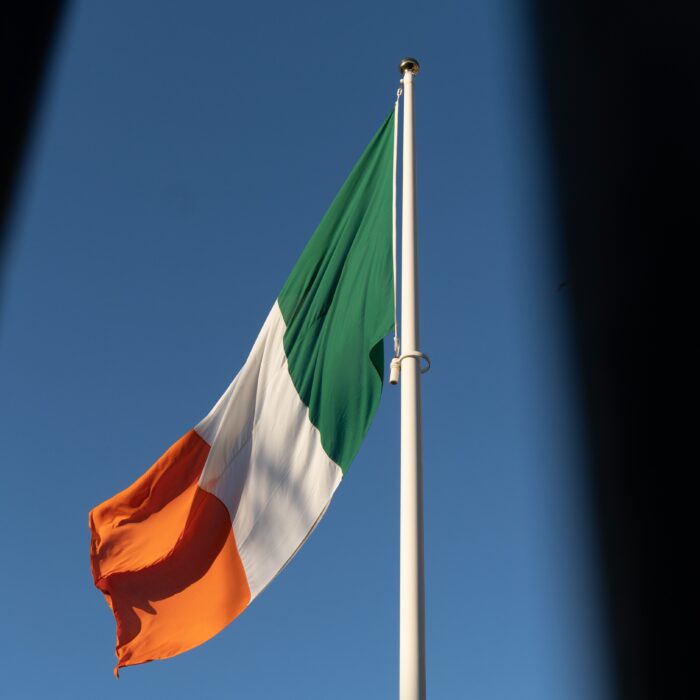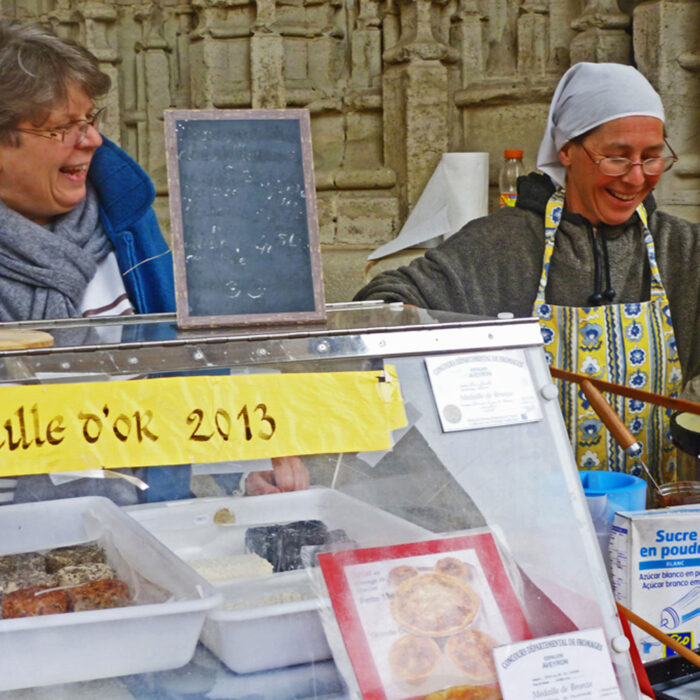You have no items in your cart. Want to get some nice things?
Go shopping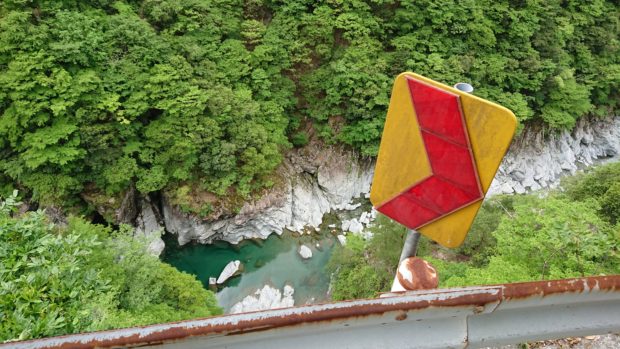
Start from part one of this series.
One vine on its own snaps easily, but the strength of many tied together is enough to carry you over a gorge. That was the mantra I clung to as we waited in line. We were about to take our own tentative steps on Kazurabashi Bridge, deep in the multi-green hills of the Iya Valley. Looking around at the dazzled faces, beyond to the verdant backdrop and ahead to the spectacle of an actual bridge made of vines, I couldn’t imagine why the island of Shikoku remains one of Japan’s least visited.
Soon it was our turn. Foolish Westerns, I thought, coming to this place of death. But though the bridge did sway a little, and there were arm-width gaps of rushing blue at our feet, I didn’t feel unsafe. My only worry was for the toddlers clomping along, guided by brave-patient-crazy parents, and then for my phone as I attempted to Vivian Maier the sight but then thought better of it.
To stand on vines, suspended in a cradle of them over a gorge, the water’s breeze at our faces and the sound of human amazement all around, was nothing short of euphoric. I was so happy I could die.
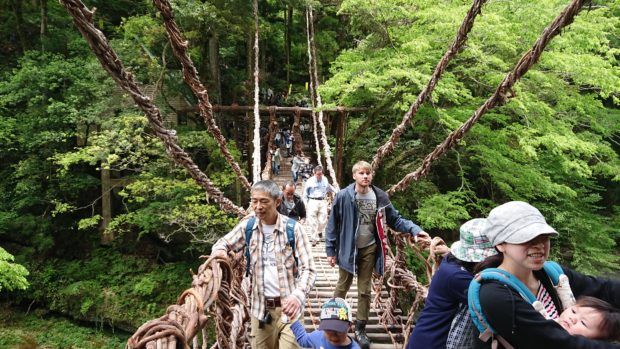
*
We’d taken the train from Yoshinogawa, a nowheresville of rice paddies and silent parks between sparse neighbourhoods. We had only been there for a single night’s stay in a useful hostel, acting as a stepping stone along our Shikoku trail. Sitting almost entirely alone in this universe, the hostel was run by a friendly young woman, accompanied by a taciturn male in the background. Having dumped our rucksacks in the shared dorm, we went foraging for dinner. Apart from the hostel, the only place along this expanse of barrenness was a petrol station. My husband got himself a few hot pieces of chicken in a paper bag. My veggie self’s dinner that night was a packet of crisps.
We ate over our guidebooks and maps in the hostel’s common room, where teacups and saucers were arranged on a trestle table against a wall as if for a WI meeting. Our next couple of days routed, we sat in silence, the spouse reading his book and I on my laptop grappling with my own. In the room with us sat three other people – a young woman also on her laptop, a second chatting on her phone, and the taciturn male in the background. Without warning, he became the focus of the whole evening. As if he’d been accumulating all his volume in the period of our acquaintance, he suddenly found his voice and unleashed it in a minutes-long tirade against the girl on her phone.
My husband and I were so shocked we couldn’t move. She must’ve broken some no-phones rule we were unaware of. The man was punishing her by yelling like an angry teacher. But why had this turned into school? We were adults. Then I felt my hairs stand on end. Catching his gesticulations in the corner of my eye, I thought, He’s talking about us. This poor innocent was being chastised for some supposed interruption of my writing and my husband’s reading. But instead of doing anything, saying anything in her defence, we froze mute. What if we’d misread the situation? We didn’t know Japanese, what if there was something else the matter? Was it my place to say something to him? There was nowhere else to go. The excuses just kept coming. I’d read not to draw attention to another’s disgrace in Japan, that it trumps humiliation itself. But here was this girl, being pelted with testosterstones on account of foreign but superior guests whose superiority was founded on nothing more than more testosterone – how could we “good men” do nothing? Yet that’s what we did: nothing.
The next morning, we set off early. The friendly proprietress smiled goodbye and placed a small package in each of our hands. They were biscuits in the shape of pussycats.
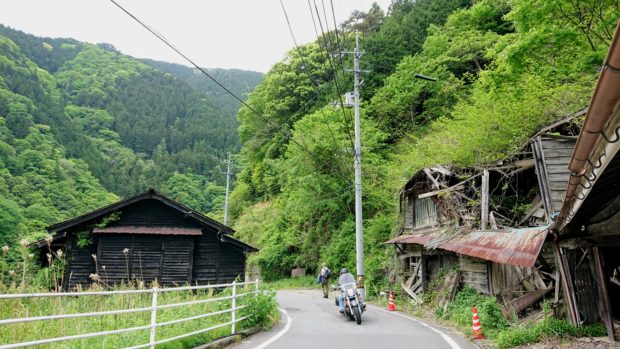
*
When my husband and I first got together, one of our friends and colleagues decided we needed a power-couple mashup name. You know the type: Brangelina, “Bennifer” (when they were a thing). And so, Polis and Chris became Piss. Everyone except me found this hilarious.
But now the nickname had miraculously become apt. For having just been enthralled by the vine bridge, we were all set to start our trek towards a most peculiar sculpture – that of Pissing Boy. Someone had actually taken the trouble to carve and erect a tribute to all the boys who’ve peed over the edge of a mountain. I still struggle to find the words. But while I can’t claim to be into that scene, I couldn’t very well pass up the opportunity to see a statue of it.
In the forty or so minutes we waited for the bus, I paid my own tribute. But I did so in – what I was led to believe at the time – was an indoor facility. At the top of some stone steps on the periphery of a mountain hamlet was a pretty little bathroom, consisting of a urinal, a cubicle, a sink and three walls. The absence of the fourth was marked by a bead curtain that reached all the way down to your neck. I was desperate, so I hurried.
The bus dropped us off at the point we’d decided to start our journey. It wasn’t long before I was moaning at my husband for choosing to go on this long, uphill pilgrimage for a pissing boy. However, the walk, along one of the few roads in the Iya Valley (a misnomer if ever there was one), provided enough visual sustenance to propel my old worn limbs. We passed through tunnels in leaf-covered hills; over a scarlet iron bridge; past unassuming shrines on the disappearing-reappearing hard shoulder of the one-lane asphalt road. An estate of faded pink apartment blocks and burnt-out wooden shacks that once were garages stood as humbling reminders of man’s small and ultimately erasable fingerprint. For by our side, around us, below, was Nature. A stormy verdant sea; a billion leaves and twigs and branches and trunks and blades that undulated in unison. Every photo I took on my little phone, pointless. It wouldn’t be captured. This Mother was at odds with, not at one with, us.
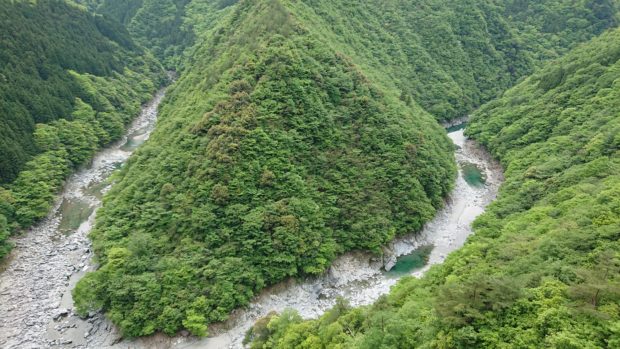
Cars pulled up at prime stops where the mountain road curved on a steep cliff. People leaned out of their windows or walked out to the barrier to take pictures of themselves against the hills, the valley, the river, anything that dwarfed them. I recalled those people gathered at the water beneath the vine bridge, carefully positioning their purse dogs for a snapshot. How silly we humans can be, thinking we have some kind of lasting power. But how united we are in our small ambitions.
Much has been made of Japanese collectivism versus Western individualism. I wondered if that was why the man had yelled at the young woman in the hostel. Did he regard her as violating some code of decency by introducing her voice to a silent room? Was he especially brutal because she wasn’t a Westerner? Or was he simply forming an army of males, however unwilling, unconscious and gauche my husband and I had been, against a female without allies?
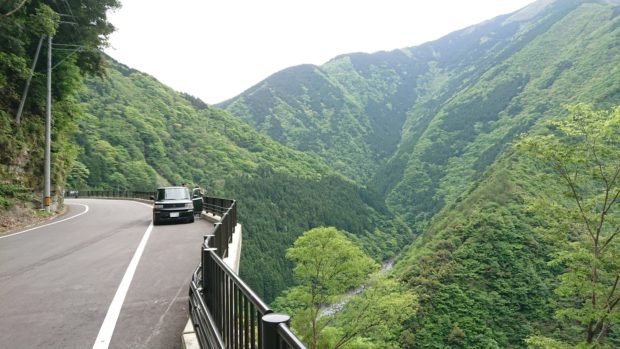
I stopped for water. I begged my husband to put an end to this folly. I’d seen Into the Wild. For hours we’d been wearing out the soles of our feet for the reward of an arrogant child urinating onto this exquisite landscape. Why celebrate such a reckless act of individualist vandalism? How could we partake in such a thing? Boys will be boys? Neither of us was that boy. We take care to separate ourselves from the symbols of “toxic masculinity”; hiding emotions, exposing biceps, boycotting Gilette; handlebar moustaches; football tribalism; bravado; aggression; yelling at women just because we’re men.
“There’s a hotel just ahead,” the fitter half of Piss said, pointing to the distance. “We can stop there for an ice cream.”
And for a while I believed him. I don’t know at what point I suspected my husband of lying to me by appealing to my greed – or worse, of lying to himself in a chilling example of mountain madness – but we reached that hotel over an hour later with an increasing conviction that it was all for nothing. We were proven right.
The Hotel Iyaonsen was precisely what it said on the tin; a hotel with onsen in the hot-spring wonderland of Iya. Nowhere on the label did it say “ice cream parlour”. We rested there for a few minutes, eyes filling up with all that greenery, and came to terms with our long trek back along it. Nearby, a bunch of American dudes was chatting in the way that guys who aren’t us do – nothing particular, or laddish, or “bad”, just a separate dialect in which we aren’t fluent. They would be going to the onsen together, entirely unfazed by each other’s nudity. Maybe they’d shared years of locker-room banter.
“Hope you make it to the pissing boy today!” chirped an Iya enthusiast on my Instagram photos a couple of days later. I was too ashamed to tell them we gave up on ever reaching him.
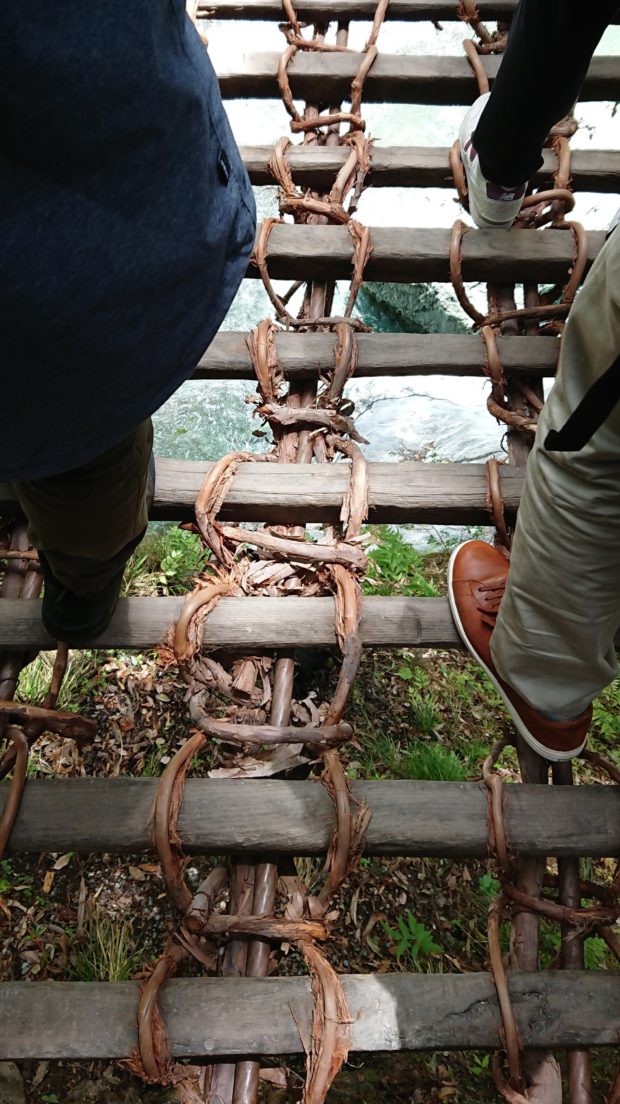
To be continued.
Polis Loizou’s debut novel, Disbanded Kingdom, is out now.

About Polis Loizou
Polis Loizou is a co-founder of The Off-Off-Off-Broadway Company, which primarily performs his plays, and has had a series of successes since their first hit at the Buxton Fringe in 2009. His short stories have been featured in The Stockholm Review of Literature and Liars’ League NYC, and he is a frequent contributor to Litro Magazine. Born and raised in Cyprus, Polis is currently based in Nottingham after 14 years in London. 'Disbanded Kingdom' is his first published novel. He is currently represented by Litro's bespoke literary agency, Litro Represents.
- Web |
- More Posts(25)

